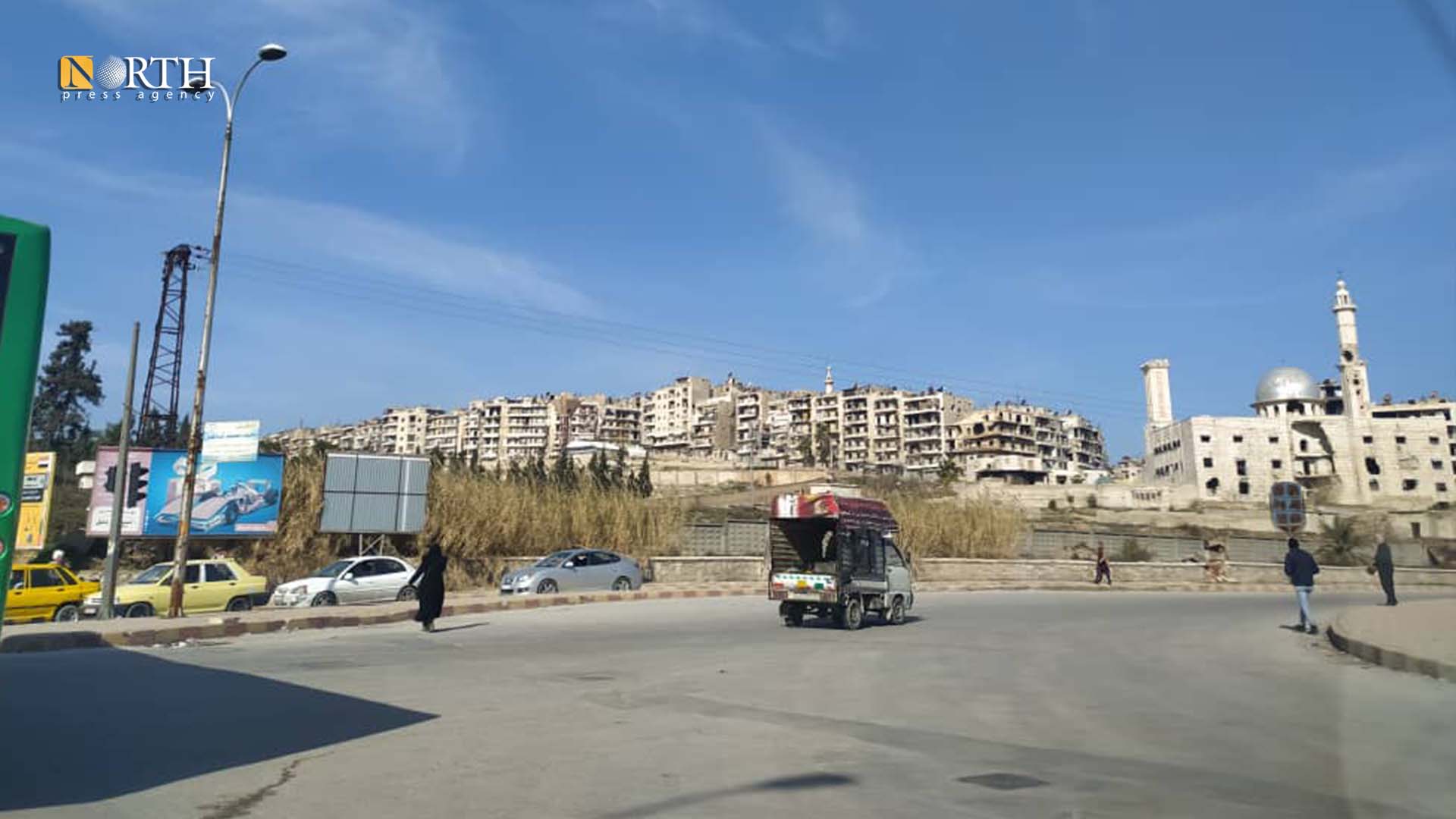ALEPPO, Syria (North Press) – Residents who moved from Syrian government-held areas in the city of Aleppo, to Kurdish-led Sheikh Maqsoud and Ashrafiyah neighborhoods, said that they have better living conditions in terms of availability of services, job opportunities, and low-rent houses.
They believe that the security problems and concerns are rare in these two neighborhoods, unlike the case of the other neighborhoods of the city.
“No humiliation”
Heads of families, who have recently moved to Sheikh Maqsoud, believe that the distribution of living necessities is carried out in accordance with regulations that include all residents of the neighborhood.
Rajab Mayyasa, who has recently moved from Midan neighborhood to live in Sheikh Maqsoud, said that his decision was “correct.”
“The situation is much better in terms of obtaining diesel, gas cylinders, bread and other things without the need to wait for hours in a queue and without being humiliated,” he added.
Mayyasa pointed out that obtaining these needs in Midan was considered a “victory” after waiting for hours.
“Better income”
Muhammad al-Attar, from Sayf al-Dawla neighborhood who has moved to Ashrafiyah within the civil administration-held areas, said, “The rents of the houses are nominal compared to other parts of Aleppo.”
Al-Attar used to work in a workshop in al-Jabriya neighborhood for 120,000 Syrian pounds (SYP), while he is now getting a “better payment” in Ashrafiyah.
Al-Attar pointed out that he had “fears of racial discrimination” at the beginning of his move to the neighborhood, “but these fears have disappeared, because everyone treats us as brothers and one family.”
“No security problems”
Security problems in the government-held areas of Aleppo caused Abdulaziz Deeb to leave his house in Suleiman al-Halabi neighborhood and head to Sheikh Maqsoud.
“The reason I moved to Sheikh Maqsoud is because of robbery, burglary and indiscriminate shooting by those affiliated with the government forces,” Deeb said.
Other families are heading to these neighborhoods to escape the government security services’ pursuit for those who have failed to join compulsory military service.
“I reside in my friend’s house, who left the country,” he added.
He pointed out that the cooperation between the residents and the Internal Security Forces (Asayish) allows the families to move freely in the district.
In 2012, the People’s Protection Units (YPG) repelled attacks by the Turkish-backed armed opposition groups on Sheikh Maqsoud.
In 2016, the opposition groups shelled Sheikh Maqsoud with toxic gases which caused numerous civilian causalities.
Since April 2019, Sheikh Maqsoud and Ashrafiyah are under a civil administration similar to the system of the Autonomous Administration of North and East Syria (AANES) within an institutional system independent of the Syrian government institutions in the city.
18,000 families reside for free in these two neighborhoods after coming from different Syrian regions, according to the civil administration.
Sheikh Maqsoud and Ashrafiyah, in addition to the IDPs camps and villages in the northern countryside of Aleppo are housing of the IDPs of Afrin who fled the violations of and the invasion of the Turkish army and the Turkish-backed armed opposition groups since their control of Afrin in 2018.
The two neighborhoods have been subjected to a siege by the Syrian government checkpoints, which prevented the entry of fuel and flour to them.
Earlier in February, the AANES and the Syrian government reached an agreement to lift the government siege of the neighborhoods and the northern countryside of Aleppo under the Russian auspices.

